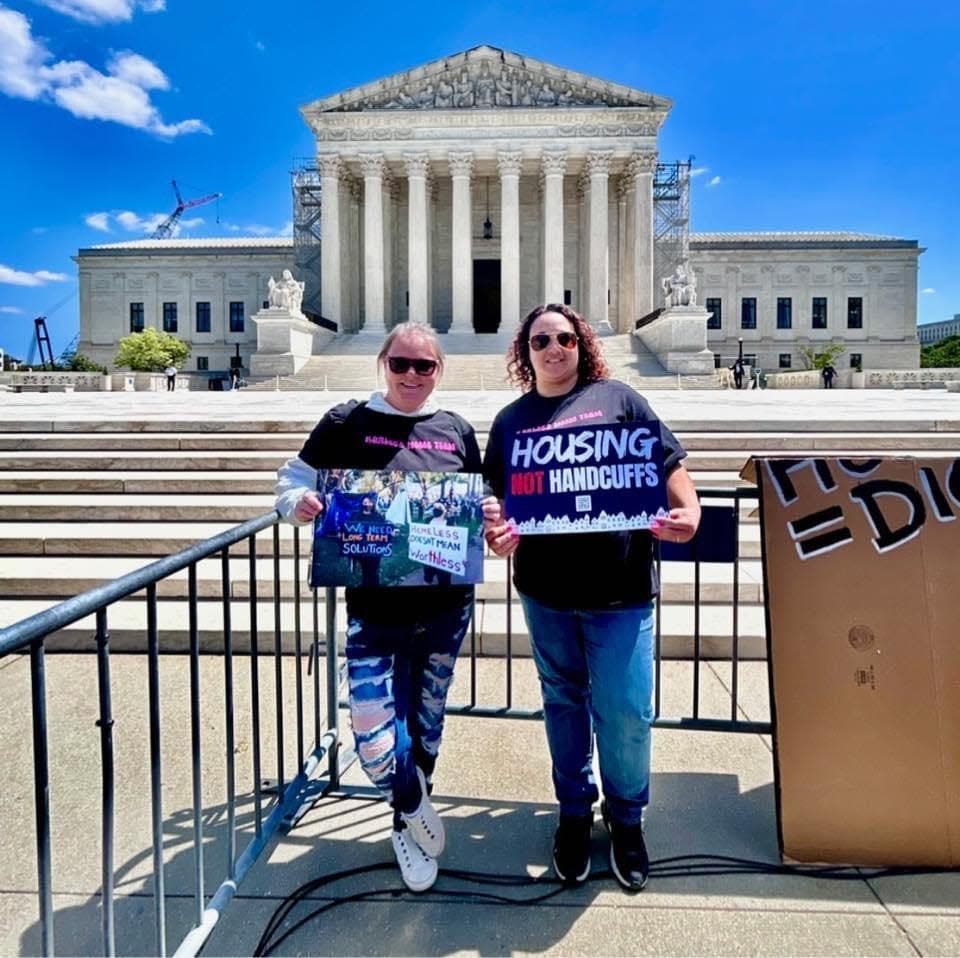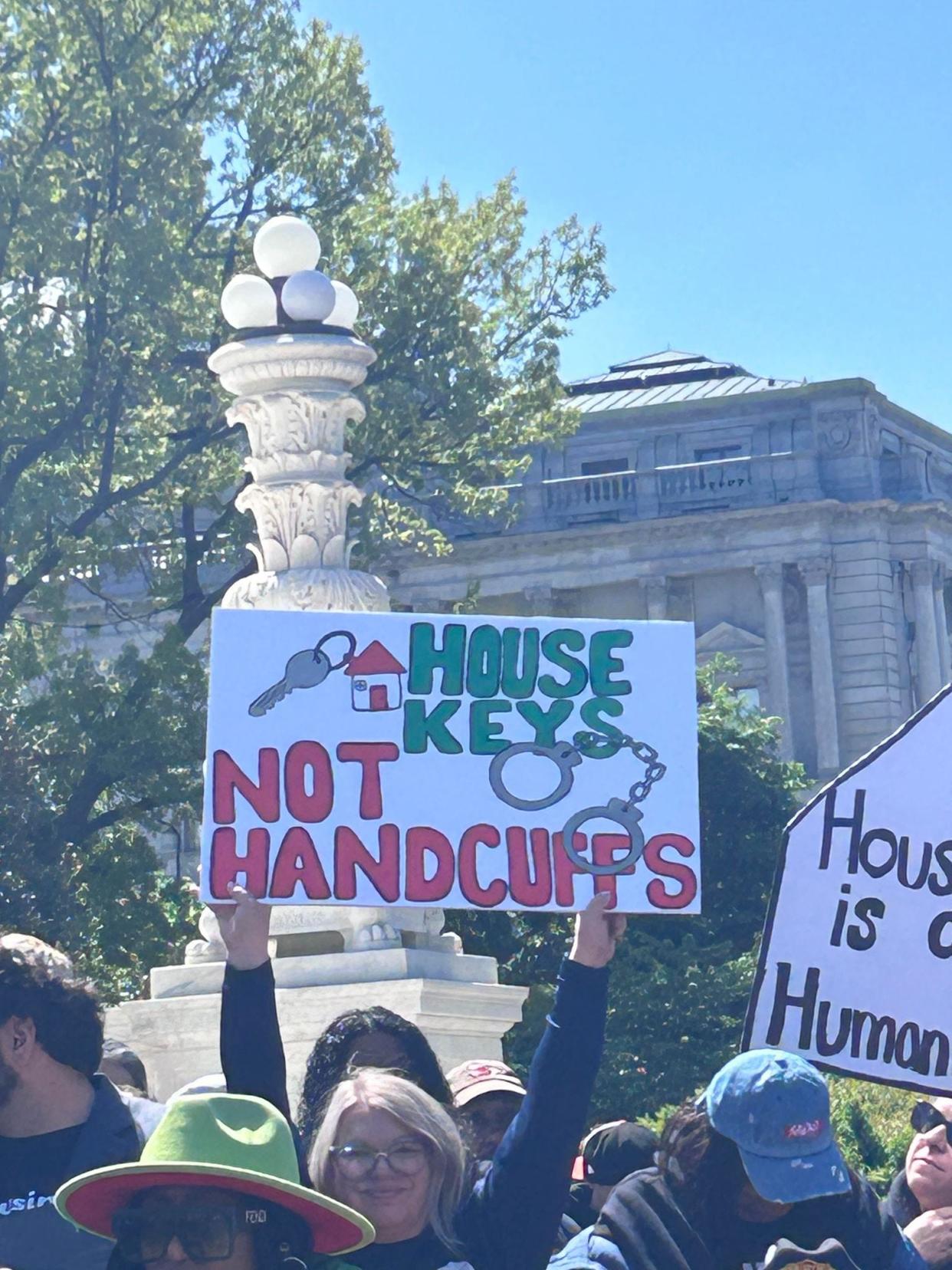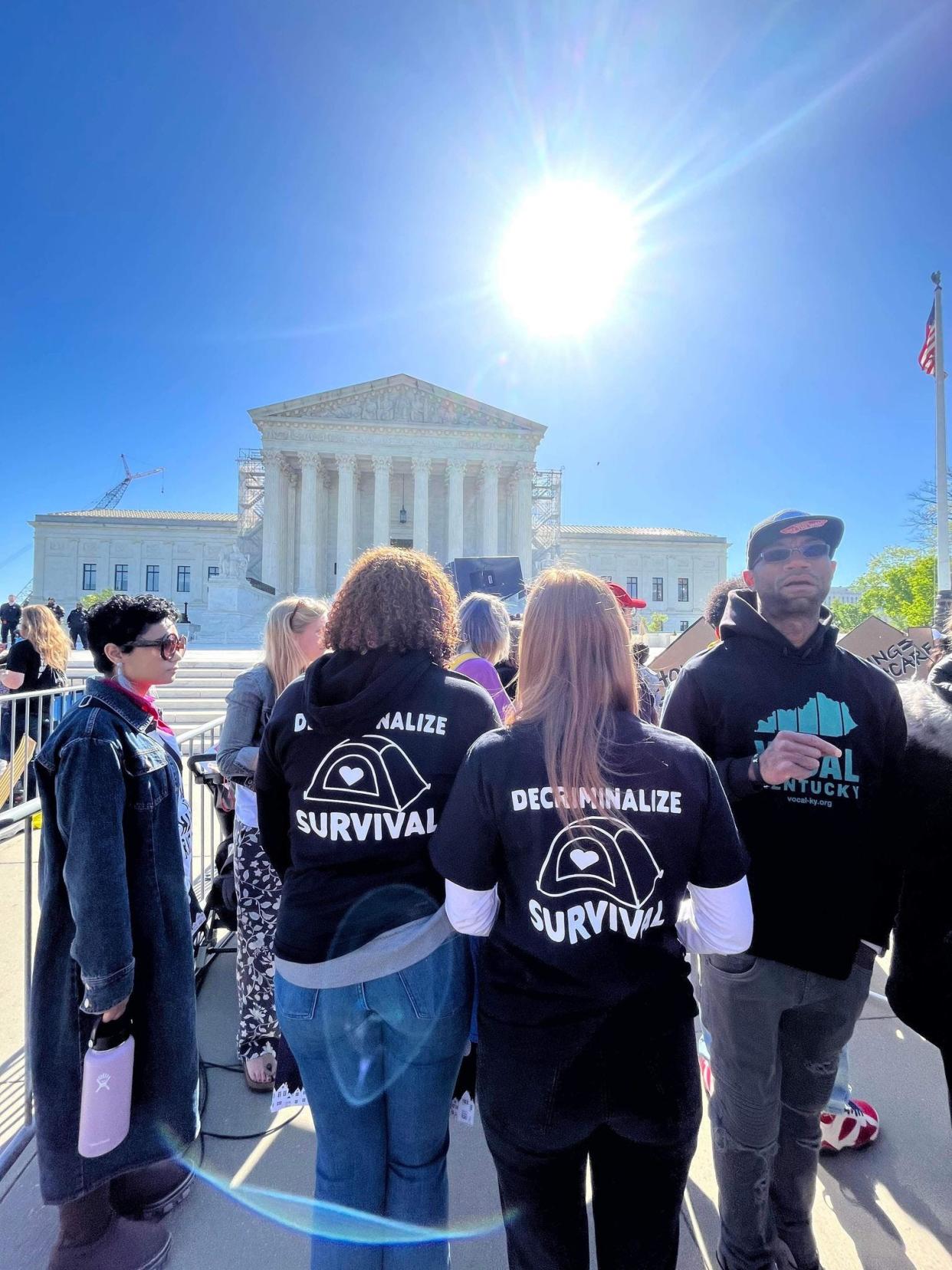Karlee's Home Team takes stand at Supreme Court for homeless rights
ROCHESTER — Members of Karlee's Home Team, the Rochester nonprofit that operated the Willand Warming Center, traveled to Washington, D.C. this week to show support for a case involving homelessness heard Monday at the U.S. Supreme Court.
Amy Malone and Melena Lugo, directors of Karlee's Home Team, said they felt it was important to make their voices heard. It was a great opportunity, they said, to network with agencies across the country sharing their same mission.
"We went with a member of our staff and our three daughters," said Malone. "It was a great experience for us all."

The case, Johnson v Grants Pass, asks whether cities can punish people who sleep outdoors.
The southern Oregon city of Grants Pass, where winter temperatures fall into the 30s, had cracked down on a homeless encampment by banning tents, blankets and pillows from public parks, USA TODAY reported.
But a federal appeals court ruled that the Constitution’s 8th Amendment, which bars cruel and unusual punishment, doesn’t allow criminal charges against people sleeping outside when they have nowhere else to go. At Grants Pass, fines for sleeping in a public park start at $295 and can lead to jail sentences for repeat offenses, USA TODAY reported.
Malone and Luga joined other homeless advocate groups in demonstrating outside the high court during the hearing. Malone said the justices sent people out periodically to keep them apprised of what was happening.

A decision in the case is expected by the end of June.
"Where are they supposed to go?" said Malone of the homeless. "The Constitution says we cannot discriminate against citizens. It forbids cruel and unusual punishment. So, you cannot discriminate against someone because of their status of being homeless. We are obligated to help, not to go after them."
The Willand Center, a seasonal shelter, is closed now. However, Malone and Lugo said they continue their efforts to help their clients.
"One great thing is that we met a lot of like-minded people who are working toward the same goals," she said. "We talked a lot, about what we are all doing, about what is working and what is not."

The housing problem is not limited to any one state. Malone said it is nationwide, worldwide and until people come together to address the problem and not try to sweep it under the rug, it will continue to grow.
"We learned there is a place in Kentucky where it is a felony to be caught sleeping on public property," she said. "How crazy is that? Being homeless is not a criminal act. People are being treated like criminals with no options offered."
Malone said there are options if people are willing to work together, are willing to put resources into helping people and not harassing them.
"The answer is not to arrest people," said Malone. "The answer is not to force them to move to another town, another state. The answer is housing and the necessary health care services to support them. We need to change the narrative and remember these are people, of all ages, all races, and they need our help to change their narrative."
Material from USA TODAY was used in this report.
This article originally appeared on Fosters Daily Democrat: Rochester advocates take stand at Supreme Court for homeless rights
